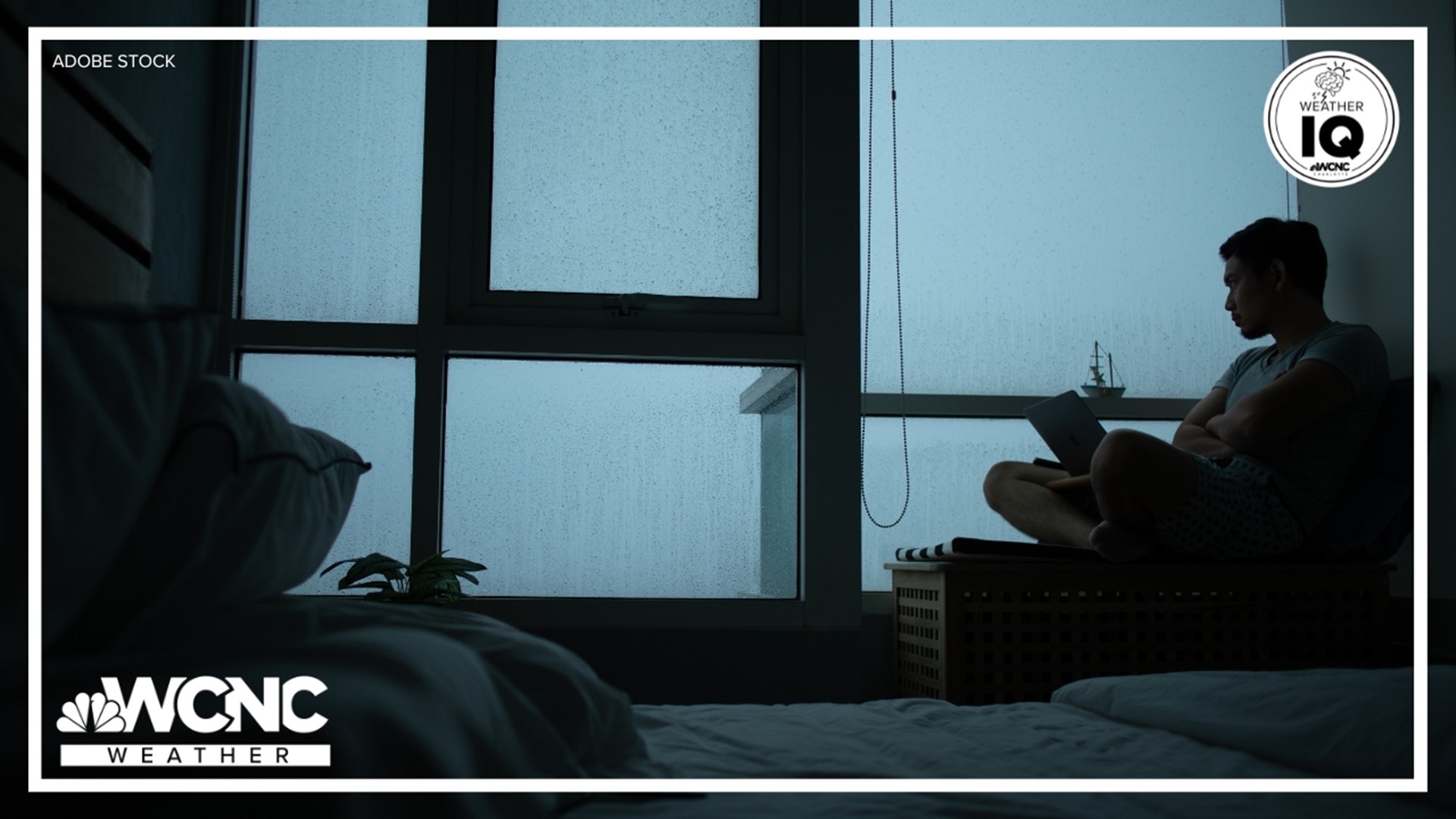CHARLOTTE, N.C. — It's this time of year that the cold, less daylight and days lacking sun can make you feel under the weather. Known as seasonal affective disorder, or SAD. Let's raise that Weather IQ.
What is seasonal affective disorder?
Does winter have you feeling down, unmotivated, lacking focus, affecting your sleep or eating patterns? If you answered yes to any of these, this time of year may have you SAD, or suffering from seasonal affective disorder.
Over 10 million people in the U.S. have been clinically diagnosed with SAD but many of you may have it and not even realize it. Seasonal affective disorder begins when the weather gets colder, later in the fall and through the winter.
“It is similar to the symptoms of depression but much milder and passes quickly when the season changes,” Dr. Susan Albers with the Cleveland Clinic said.
The biggest culprit: less daylight. Charlotte, for instance, averages less than 11 hours of daylight from late October to mid-February and less than 10 hours of daylight from after Thanksgiving through the first couple weeks of January.
The reason? SAD is linked to low vitamin D levels. Our bodies naturally produce vitamin D when exposed to sunlight.
During winter's colder and cloudy days, our limited time in the sun messes with our circadian rhythm (our biological clocks). This interrupts with our serotonin and melatonin production, impacting our mood and sleep.
How to turn the frown upside down?
Eat better: Emotional eating is common in the winter. We crave carbs that give us a boost of dopamine but healthy foods naturally boost your mood during the colder months and will combat seasonal affective disorder more effectively. Especially Vitamin D-enriched foods like salmon and tuna.
Exercise: Running, working out and even walking are natural antidepressants. They produce dopamine and endorphins.
Take advantage of sunny days: When you look out the window and the sun is shining, go for a walk or just be outside. Even 15 minutes of sunshine a couple of times a week can improve your mood.
Light therapy: You can get an artificial light that you can put at your desk, side table or beside you that will mimic the sun and help your body naturally produce some vitamin D.
Some summer/early fall advice: Before the colder weather sets in, getting in the sun as much as possible can raise your vitamin D levels and help curb the onset of SAD.
Check with a doctor and check to see if you have low vitamin D levels if you think you are suffering from seasonal affective disorder. Or if you need some help getting over the winter blues, talk to someone who can help.
If you or a loved one are facing thoughts of suicide or self-harm, there is help readily available. You can call Suicide and Crisis Lifeline at 988 or chat with them online. There are also resources in North Carolina available here and in South Carolina available here.
Contact Chris Mulcahy at cmulcahy@wcnc.com and follow him on Facebook, X, Instagram and TikTok.
WCNC Charlotte To Go is a daily news and weather podcast you can listen to so you can start your day with the team at WCNC Charlotte.
SUBSCRIBE: Apple Podcasts || Spotify || Pandora || TuneIn || Google Podcasts || iHeart
All of WCNC Charlotte's podcasts are free and available for both streaming and download. You can listen now on Android, iPhone, Amazon, and other internet-connected devices. Join us from North Carolina, South Carolina, or on the go anywhere.

